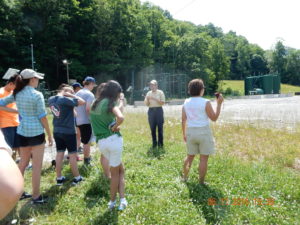Let’s Talk Fracking

To view the photo-rich magazine version, click here.
Originally appears in the Fall 2017 issue
by Samantha Rubright
The process of obtaining oil and natural gas is a controversial topic triggering vigorous debates around the globe. Providing energy for Americans through the production of domestic fossil fuel resources was one of the key promises President Trump made to “Make America Great Again” during his run for the White House. Drilling companies have pushed to access natural gas in coal seams in Australia, and in tight shale formations in parts of Europe. Canada’s oil and gas industry survives by exporting most of its products to the United States, with hopes of expanding into overseas markets. Intentionally omitted from discussion of all of these goals, however, are the serious costs associated with extracting and distributing these non-renewable resources.
Can fracking contaminate drinking water? How does energy production change the places we love? What pollutants are being emitted from oil and gas well pads on a daily basis? Will this activity impact my health, or the health of my family? Though seemingly straightforward, these questions are difficult for most people to answer. That’s because oil and gas drilling may not be occurring in their backyards. The oil and gas industry is much broader than oil wells, however. Related infrastructure often generates a large footprint. For example, railroad tankers carry volatile oil and gas products and supplies across sizeable swaths of land. Sand mines are expanding to provide sand for hydraulic fracturing. Refineries and export facilities dominate the skyline in industrial areas. Oil and gas pipelines stretch thousands of miles and thus create a much larger network of risk.
Educators — from math teachers to writing instructors — have a critical role to play in educating our youth about various energy options, their complexities, and their impacts. Students who know about the diverse facets of this industry and feel that they have a voice can better shape the dialogue about fossil fuels and other sources of energy.
This content is restricted to subscribers only.
If you are not yet a subscriber, please consider taking out a subscription here.
If you are an existing subscriber, kindly log in or contact us at info@greenteacher.com for more information.





